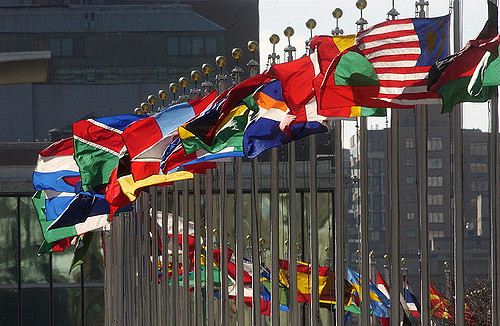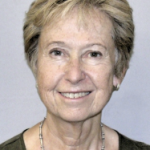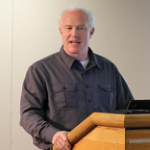In this post LSE Research Fellow Dr Pritish Behuria reviews the UNDP (United Nations Development Programme) Global Centre for Public Service Excellence 3-day Conference, that was held in Singapore last month (April 2016)


Between 12 and 14 April 2016, The UNDP Global Centre for Public Service Excellence (GCPSE) held a conference in Singapore on the subject of Political Settlements and Public Service Performance. The conference was one of GCPSE’s initiatives to introduce fresh thinking on public service reforms in late developing countries. The conference, which was co-sponsored by the Development Leadership Program and the Centre for Public Impact, worked in line with recent attempts within the academic and development practitioner community to Think and Work Politically (TWP), Work with the Grain and Do Development Differently. The conference intended to develop a deeper understanding of how political settlements impact the performance of public service, diagnose political dimensions of public service performance and identify concrete opportunities and activities that leverage ‘politics’ to deliver development goals.

The subject of the conference was inspired by Mushtaq Khan’s work on political settlements, which argues against assumptions associated with the Good Governance paradigm. Khan’s work highlights that since patron-client relationships predominate in late developing countries, it is unfair to assume that ‘best practice’ initiatives may be suitable in those contexts. A large amount of work using political settlements has flourished since then including work developed through initiatives like the Crisis States Research Centre and the Effective States and Inclusive Development Research Centre. Douglass North developed the Access Orders framework along similar lines although his work exhibits key differences when compared to Mushtaq Khan’s work. The conference aimed to engage with the emerging political settlements literature to help develop an understanding of how such work can inform development practitioners to think politically about public sector reforms.

Max Everest-Phillips, the Director of GCPSE, began the conference with appreciation of Sue Unsworth, who passed away recently. In the 1990s, Sue Unsworth was a leading proponent within the donor community to think and work politically. Over the better part of three decades, she was at the forefront of fresh, heterodox thinking in international development practice. To honour this tradition, the conference chose to use Brian Levy’s work on Working with the Grain as a base on which to examine how political settlements work could inform public sector programming. Levy emphasises the importance of gradual, patient approaches to tackling development problems, rather than a strict adherence to best practice approaches. He argues that the latter kind of approach is often associated with “looking like Denmark”, with very little consideration of the processes by which countries may achieve the same gains as Denmark. He recognises that there are varied ways in which countries achieve progress. To examine how progressive change occurred in late developing countries, Levy developed a 2*2 typology to categories countries as they progress towards delivering liberal democracy. During the 3-day conference, participants were asked to examine where countries fit in relation to the typology. There was considerable disagreement among different countries about where countries were placed during specific periods. This showcased the dynamic nature of political settlements and just how difficult it is to decipher how the distribution of power between different groups in late developing countries.
Verena Fritz followed Levy’s presentation by showcasing her recent work and highlighting how the World Bank has chosen to engage with work on political settlements and public sector reforms. Alina Rocha Menocal, of the DLP, presented work discussing inclusive political settlements and how they matter for public service interventions. Debates about ‘inclusive political settlements’ have been common in the political settlements literature and there is a great deal of disagreement over how to define ‘inclusion’. Though inclusion tends to have normative value, not enough emphasis is placed on the darker side of ‘inclusion.’ Jairo Acuña-Alfaro, of the UNDP, then presented his own illustration of the political settlement in two Latin American countries. Acuña-Alfaro’s presentation was inspired by his previous work with Mushtaq Khan on Vietnam.

Michael Woolcock, of the World Bank, then described his own views on how politics can inform development practitioner work in late developing countries. Borrowing from his previous work on Problem-Driven Iterative Adaptation (PDIA), he argued that development interventions should be problem-driven and locally-led. He argued that such approaches could often lead to cumulative change. He cited Pratham’s work in India as an example. He also illustrated the dangers of isomorphic mimicry, with developing countries often incentivised to project the adoption of best practice reforms while hiding the capability gaps that are often associated with institutions in those countries. He argued that even in the United States, a focus on ‘best practice’ does not lead to sustained positive outcomes. One example is Mark Zuckerbeg’s well-intentioned 100 million dollar investment in Newark schools.
The second day began with presentations, which focused on country-specific examples. Rwanda’s success in reforming its public sector was presented by the Rwanda Governance Board’s Shyaka Anastase. The use of imihigo (performance contracts) has been lauded by many observers as a participatory governance mechanism. Since then, citizen scorecards and other innovations have followed. Papua New Guinea’s reforms were presented by John Ma’o Kali, Secretary, Department of Personnel Management in the Papua New Guinean government.
 Throughout the three days, there were group exercises with regard to how politics could be brought into thinking about public sector reforms. Maria Eugenia Boza, of the UNDP’s Sistema de Gestion para la Gobernabilidad (SIGOB), organised a role-play exercise to showcase the information and power asymmetries that development practitioners have to deal with when thinking about policy reforms. Several participants acknowledged other challenges associated with working politically as development practitioners, arguing that engaging in such discussions could lead to development professionals becoming persona non grata in the countries where they work. Many participants, working for the UNDP, suggested that most development practitioners already think and work politically and such discussions are not new. However, there was general agreement about the need to frame development practitioner work in terms of thinking politically. Meanwhile, there was general frustration regarding the lack of consensus about what this meant or how it could be put into practice to deliver development outcomes. Such frustration has been characterised by Carothers and Da Gramont in their arguments that discussions emphasising the importance of the politics of development have resulted in an ‘almost revolution.’
Throughout the three days, there were group exercises with regard to how politics could be brought into thinking about public sector reforms. Maria Eugenia Boza, of the UNDP’s Sistema de Gestion para la Gobernabilidad (SIGOB), organised a role-play exercise to showcase the information and power asymmetries that development practitioners have to deal with when thinking about policy reforms. Several participants acknowledged other challenges associated with working politically as development practitioners, arguing that engaging in such discussions could lead to development professionals becoming persona non grata in the countries where they work. Many participants, working for the UNDP, suggested that most development practitioners already think and work politically and such discussions are not new. However, there was general agreement about the need to frame development practitioner work in terms of thinking politically. Meanwhile, there was general frustration regarding the lack of consensus about what this meant or how it could be put into practice to deliver development outcomes. Such frustration has been characterised by Carothers and Da Gramont in their arguments that discussions emphasising the importance of the politics of development have resulted in an ‘almost revolution.’
The conference ended with a great deal of agreement about the need to move away from ‘best practices’ and to work on development reforms that were best-suited to particular developing country contexts. There was also agreement about the need to develop better politically-informed programming. However, it was also very clear that unless there was more clarity in terms of what such programming looks like, there was a danger that momentum could fizzle out. Some central points of concern were the lack of consensus within the scholarly and development practitioner community about how to define political settlements. It was also clear that though the term – political settlement – is widely used, there has been very little attempt to develop clear methodologies about how to study (or uncover) political settlements. In terms of the specific focus of the conference, there was still very little discussion of where bureaucracies sit within political settlements. More needs to be done to be discuss the political-administrative interface and whether bureaucracies are just pawns for politicians or whether they can be autonomous or whether they can even develop ideational structures of their own and become political actors in themselves. It is hoped that such discussions will become more popular among those who work in public administration and be carried forward by the TWP community.





